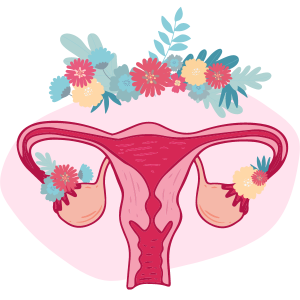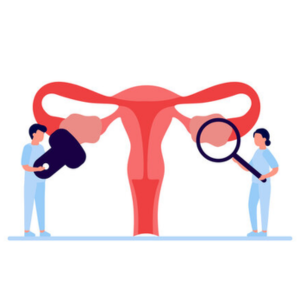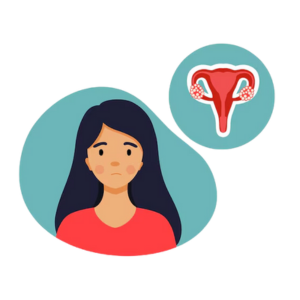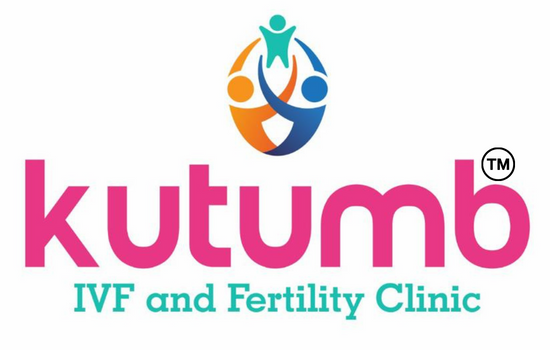 PCOS and Fertility
PCOS and Fertility
Polycystic Ovary Syndrome (PCOS) is a hormonal disorder common among women of reproductive age, characterized by irregular menstrual cycles, excess androgen levels, and polycystic ovaries. PCOS significantly impacts fertility, disrupting ovulation and leading to difficulties in conceiving naturally. Women with PCOS also face a higher risk of miscarriage and pregnancy complications. Fertility preservation is essential for women with PCOS who desire children in the future. Early detection and management of PCOS are crucial for informed decisions about reproductive health. Infertility doctors can provide specialized care and support for individuals with PCOS seeking fertility preservation options.
 Understanding the Importance of Early PCOS Detection
Understanding the Importance of Early PCOS Detection
Early detection of PCOS offers several benefits, particularly concerning fertility preservation:
a. Timely Intervention: Identifying PCOS early allows for prompt intervention and management. Lifestyle modifications, such as diet and exercise changes, can help regulate menstrual cycles and improve ovulation. Additionally, medications may be prescribed to address hormonal imbalances and enhance fertility potential.
b. Preventing Complications: PCOS is associated with various complications beyond fertility issues, including insulin resistance, obesity, and cardiovascular problems. Detecting PCOS early enables healthcare providers to implement strategies to prevent or manage these complications effectively.
c. Improved Fertility Outcomes: Managing PCOS from an early stage can improve fertility outcomes. By addressing ovulation issues and hormonal imbalances, women with PCOS may have a higher likelihood of conceiving naturally or with assisted reproductive technologies, such as in vitro fertilization (IVF).
d. Psychological Well-being: The emotional toll of infertility can be significant. Early detection of PCOS allows individuals to access support services and counselling to cope with the emotional challenges associated with fertility issues. It also provides a sense of empowerment, knowing that proactive steps are being taken to preserve fertility.
Polycystic Ovary Syndrome (PCOS) affects millions of women worldwide, making it one of the most common endocrine disorders. Despite its prevalence, PCOS often goes undiagnosed or misdiagnosed, leading to potential complications, including fertility issues. Recognizing the symptoms and understanding the risk factors associated with PCOS is crucial for early detection and intervention.
1. Irregular Menstrual Cycles: One of the hallmark symptoms of PCOS is irregular menstrual cycles. Women with PCOS may experience infrequent periods or prolonged cycles, often due to hormonal imbalances.
2. Excess Androgen Levels: Elevated levels of androgens, often referred to as male hormones, are common in women with PCOS. This can lead to symptoms such as acne, hirsutism (excessive hair growth), and male-pattern baldness.
3. Polycystic Ovaries: Despite the name, not all women with PCOS have cysts on their ovaries. However, the presence of multiple small cysts on the ovaries, detected through ultrasound, is a common characteristic of the syndrome.
4. Insulin Resistance: Insulin resistance is frequently observed in women with PCOS, leading to high levels of insulin in the blood. This can contribute to weight gain, particularly around the abdomen, and may increase the risk of developing type 2 diabetes.
5. Obesity: While not all women with PCOS are overweight, obesity is a common risk factor. Excess weight can exacerbate hormonal imbalances and insulin resistance, worsening PCOS symptoms.
6. Family History: PCOS tends to run in families, suggesting a genetic predisposition to the condition. Women with a family history of PCOS are at a higher risk of developing the syndrome themselves.
 Diagnostic Techniques for PCOS
Diagnostic Techniques for PCOS
Diagnosing PCOS can be challenging due to the varied presentation of symptoms and the absence of a single definitive test. Healthcare providers typically rely on a combination of medical history, physical examination, and laboratory tests to assess for the presence of PCOS.
1. Medical History and Physical Examination: A comprehensive medical history is essential for identifying symptoms associated with PCOS, such as irregular periods, acne, hirsutism, and weight gain. During the physical examination, the healthcare provider may assess for signs of excess androgens, such as acne and male-pattern hair growth, as well as perform a pelvic examination to check for ovarian abnormalities.
2. Blood Tests: Blood tests are used to measure hormone levels associated with PCOS, including testosterone, luteinizing hormone (LH), follicle-stimulating hormone (FSH), and insulin. Elevated levels of androgens and LH, along with a higher LH-to-FSH ratio, are commonly observed in women with PCOS. Additionally, assessing fasting glucose and insulin levels can help identify insulin resistance, a common metabolic feature of PCOS.
3. Ultrasound Imaging: Transvaginal ultrasound is a non-invasive imaging technique used to visualize the ovaries and assess for the presence of cysts or follicles. While not all women with PCOS will have ovarian cysts, the appearance of multiple small follicles arranged around the periphery of the ovary, often described as a “string of pearls,” is characteristic of the syndrome.
4. Other Tests: In some cases, additional tests may be recommended to rule out other conditions that mimic PCOS, such as thyroid disorders or adrenal gland abnormalities. These may include thyroid function tests, adrenal hormone testing, or specialized imaging studies.
Early detection of PCOS allows for timely intervention and management, which is crucial for minimizing the risk of complications such as infertility, type 2 diabetes, and cardiovascular disease.
By employing a multidisciplinary approach that combines clinical evaluation, laboratory testing, and imaging studies, healthcare providers can accurately diagnose PCOS and tailor treatment strategies to individual needs.
 Impact of PCOS on Fertility and Reproduction
Impact of PCOS on Fertility and Reproduction
Polycystic Ovary Syndrome (PCOS) poses significant challenges to fertility and reproduction due to its disruption of hormonal balance, leading to irregular menstrual cycles, ovarian cysts, and difficulties with ovulation. As a result, individuals with PCOS often face increased risks of infertility and struggle to conceive naturally. In such cases, seeking assistance from an IVF center in Visakhapatnam can provide valuable support and options for fertility treatments tailored to address the specific needs of PCOS patients.
Irregular Menstrual Cycles: One of the hallmark symptoms of PCOS is irregular menstrual cycles. Instead of the typical 28-day cycle, women with PCOS may experience cycles that are longer or shorter, or they may skip periods altogether. This irregularity makes it challenging to predict ovulation, which is crucial for conception.
Anovulation: PCOS often leads to anovulation, where the ovaries fail to release a mature egg during the menstrual cycle. Without ovulation, conception cannot occur naturally. Even if ovulation does occur sporadically, the quality of the eggs may be compromised, further reducing the likelihood of successful fertilization.
Ovarian Cysts: The name “polycystic ovary syndrome” refers to the presence of multiple small cysts on the ovaries. While these cysts themselves may not directly impact fertility, they are a common characteristic of PCOS and often accompany other fertility-related issues.
Insulin Resistance: Many women with PCOS also experience insulin resistance, where their cells become less responsive to insulin, leading to elevated blood sugar levels. Insulin resistance can disrupt normal hormone production, exacerbating fertility challenges and increasing the risk of miscarriage.
Increased Risk of Miscarriage: Even if a woman with PCOS successfully conceives, there is an increased risk of miscarriage compared to women without the condition. Hormonal imbalances and other metabolic factors associated with PCOS can contribute to pregnancy complications.
 Fertility Preservation Options for PCOS Patients
Fertility Preservation Options for PCOS Patients
Despite the challenges posed by PCOS, there are several fertility preservation options available to individuals who wish to conceive in the future:
Lifestyle Modifications: Adopting a healthy lifestyle can help manage PCOS symptoms and improve fertility outcomes. This includes maintaining a balanced diet, engaging in regular exercise, managing stress levels, and avoiding smoking and excessive alcohol consumption.
Medication: Fertility medications such as clomiphene citrate or letrozole may be prescribed to induce ovulation in women with PCOS. These medications help regulate the menstrual cycle and stimulate the release of eggs from the ovaries, increasing the chances of conception.
Assisted Reproductive Technologies (ART): In vitro fertilization (IVF) is a commonly used ART procedure that can help overcome infertility associated with PCOS. During IVF, eggs are retrieved from the ovaries, fertilized with sperm in a laboratory setting, and then transferred to the uterus. This bypasses any issues with ovulation or fallopian tube function.
Ovulation Induction: In addition to medication, techniques such as ovarian drilling or laparoscopic ovarian diathermy may be used to induce ovulation in women with PCOS. These procedures involve making small incisions in the ovaries to improve hormone regulation and stimulate ovulation.
Egg Freezing: For women who are not ready to conceive but wish to preserve their fertility, egg freezing (oocyte cryopreservation) offers a viable option. Eggs are retrieved from the ovaries, frozen, and stored for future use. This allows women with PCOS to postpone childbearing until they are ready, without compromising their chances of conceiving.
Lifestyle Modifications and Medical Interventions
Lifestyle Modifications:
1. Healthy Diet: Adopting a balanced diet rich in fruits, vegetables, whole grains, and lean proteins can help regulate insulin levels and manage weight, both of which are significant factors in PCOS management.
2. Regular Exercise: Engaging in regular physical activity not only aids in weight management but also helps improve insulin sensitivity, which is often impaired in women with PCOS.
3. Stress Management: Chronic stress can exacerbate PCOS symptoms. Techniques such as yoga, meditation, or deep breathing exercises can help reduce stress levels and promote overall well-being.
4. Adequate Sleep: Prioritize getting sufficient sleep each night, as inadequate sleep can disrupt hormonal balance and exacerbate PCOS symptoms.
5. Limiting Processed Foods and Sugars: Processed foods and excessive sugar intake can contribute to insulin resistance and weight gain, worsening PCOS symptoms. Opt for whole, unprocessed foods whenever possible.
Medical Interventions:
1. Regular Check-ups: Routine visits to a healthcare provider are essential for early detection of PCOS. Symptoms such as irregular periods, acne, excessive hair growth, and unexplained weight gain should prompt further evaluation.
2. Hormonal Testing: Blood tests to measure hormone levels, including testosterone, luteinizing hormone (LH), follicle-stimulating hormone (FSH), and insulin, can aid in diagnosing PCOS.
3. Ultrasound Imaging: Transvaginal ultrasound can reveal the presence of ovarian cysts and assess the size and appearance of the ovaries, which are often enlarged in women with PCOS.
4. Medications: Depending on the symptoms and underlying hormonal imbalances, healthcare providers may prescribe medications such as oral contraceptives, anti-androgens, or insulin-sensitizing agents to manage PCOS symptoms and improve fertility outcomes.
5. Fertility Preservation Techniques: For women concerned about fertility, fertility preservation techniques such as egg freezing or embryo cryopreservation may be considered, especially if PCOS is affecting ovarian function.
Conclusion
In conclusion, early detection of PCOS plays a crucial role in fertility preservation, particularly in the context of female infertility treatment in Vizag. By diagnosing and managing PCOS promptly, women can take proactive steps to preserve their fertility, improve reproductive outcomes, and mitigate the emotional impact of infertility. Therefore, it is imperative for healthcare providers in Vizag to prioritize screening for PCOS, especially in women presenting with menstrual irregularities or fertility concerns.
